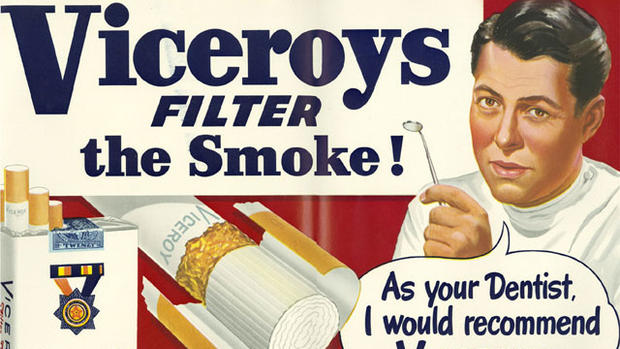FDA: Menthol cigarettes raise public health questions
RICHMOND, Va.Menthol cigarettes may be risky to public health, according to government health officials who are trying to figure out what to do about the minty-flavored cigarettes.
A review from the Food and Drug Administration (FDA) finds that menthol cigarettes likely pose a greater public health risk than regular cigarettes. But, the agency stopped short of making a recommendation as to whether to limit or ban menthols -- one of the few growth sectors of the shrinking cigarette industry.
The FDA's independent review was released on Tuesday, and the agency called for input from the health community, the tobacco industry and the general public on possible restrictions on menthol smokes.
"Menthol cigarettes raise critical public health questions," FDA Commissioner Dr. Margaret A. Hamburg, said in a statement. "The FDA is committed to a science-based approach that addresses the public health issues raised by menthol cigarettes, and public input will help us make more informed decisions about how best to tackle this important issue moving forward."
Despite recent drops in tobacco use, smoking remains the leading cause of preventable deaths in the United States. About 30 percent of adult smokers and 40 percent of youth smokers smoke menthols, according to the FDA.
The review found that there is little evidence to suggest that menthol cigarettes are more or less toxic or contribute to more disease risk to smokers than regular cigarettes. However, there is adequate data to suggest that menthol use is likely associated with increased smoking initiation by younger people and that menthol smokers have a harder time quitting, the review said.
There's also evidence indicating that menthol's cooling properties can reduce the harshness of cigarette smoke and that menthol cigarettes are marketed as a smoother alternative, according to the FDA's new review.
Mitch Zeller, director of the Center for Tobacco Products, said in a conference call with reporters that there's "no holdup" on the FDA proposing restrictions on menthol but that there are still "some important questions" that need to be answered. The agency is commissioning further research.
A 2011 FDA advisory panel report, which was mandated under the 2009 law giving the agency the authority to regulate tobacco, made many of the same findings, and said that removing menthol cigarettes from the market would benefit public health and highlighted greater use among minorities, teenagers and low-income people.
Panels like the tobacco committee advise the FDA on scientific issues. The agency doesn't have to follow its recommendations, but often does.
A 2011 study in the Journal of Preventive Medicine also found people who smoked menthols were less likely to succeed with quitting smoking.
Meanwhile, a tobacco industry report to the FDA acknowledged that all cigarettes are hazardous but said there's no scientific basis for regulating menthols differently. The industry also has raised concerns that restrictions on menthol would lead to a black market for the cigarettes.
Menthol cigarettes are one of the few growth areas in a shrinking cigarette market. The percentage of U.S. cigarette smokers using menthol brands grew from 33.9 percent in 2008 to 37.5 percent in 2011, according to a study by the federal Substance Abuse and Mental Health Services Administration, with more significant growth among younger smokers.
A menthol ban or other restriction on the flavored cigarettes would fall heavily on Lorillard Inc., whose Newport brand is the top-selling menthol cigarette in the U.S., with nearly 38 percent of the market. Lorillard, based in Greensboro, N.C., is the country's third-largest tobacco company.
CEO Murray Kessler said in a statement Lorillard looks forward to participating in the regulatory process and reiterated its long-held belief that menthol cigarettes shouldn't be treated differently.
The move comes ahead of a Wednesday deadline for the U.S. to respond to the World Trade Organization's findings last year that the FDA's ban on manufacturing, importing, marketing and distributing candy-, fruit- and clove-flavored tobacco breaks trade rules because it exempts menthol cigarettes, most of which are made in the U.S.. The investigation was launched following a request from Indonesia, which claims more than 6 million of its people depend on the production of clove cigarettes -- a staple of the country's smoking culture.
